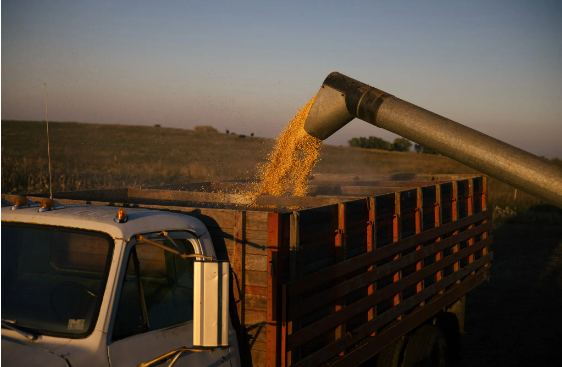我们通过发表论文来表彰学生编辑大赛的前 11 名获奖者。这是Aimee Choi,17岁。

。。。Alyssa Schukar为《纽约时报》撰稿
这篇文章由来自韩国城南首尔国际学校的 17 岁的 Aimee Choi 撰写,是学习网络第九届年度学生社论大赛的前 11 名获奖者之一,我们收到了 16,664 份参赛作品。
Planting the Next Chapter of Farming
Ask a Gen Zer about his or her dream job. The answer will likely be anything but “a farmer.”
Younger people have pursued urban opportunities without a second thought in recent decades, deepening a generational distance from rural life. The result is a dwindling and aging population of farmers worldwide. The farming population in South Korea hit a record-low in 2019, with nearly half the farmers being 65 or older; young rural Africans are leaving their small farms at “alarming rates”; and the rural population in the United States has declined for the first time in history, with over 100,000 small farms disappearing in the past decade.
Our world needs farmers more urgently than ever, and Generation Z is the only sprout of hope.
Farmers are wilting in a world where food demand only rises. In a New York Times article, author Ana Swanson details the mounting load of challenges modern farmers plow through each day, ranging from droughts and storms intensified by climate change to supply chain disruptions from the coronavirus pandemic. Coupled with countless international conflicts that ravage farmland, the farming sector approaches a looming demise.
Turning a blind eye to this issue is not an option. Not only is agriculture the foundation of global food security, but the growth of its sector can also be twice as effective in reducing poverty than that of other sectors. The preservation of local and global biodiversity — the key to strengthening resilience to climate change and other crises — also depends on heeding farmers’ rich set of traditional agricultural knowledge.
If the urgency for a greater pursuit of farming is so crystal clear, why does our generation remain so distant from it? The problem is our perception. Young people view farming as an archaic, unprofitable and unskilled occupation, the International Fund for Agricultural Development explains.
This notion couldn’t be further from the truth: The future of farms shines with bountiful innovations and technological upgrades. Satellite technology is being integrated into crop monitoring, vertical farms with highly-controlled environments are making efficient use of space and resources, and sensors, robots and drones are facilitating farming with unprecedented precision. The time is ripe for any blossoming environmentalist, physicist, biologist or engineer to make invaluable contributions to a new, sustainable farming system.
It’s time for us to steer the wheel of farming. As Gen Zers, we are more than familiar with technology, we understand the gravity of the global food crisis, and we have a knack for navigating our way through hardship.
So, start searching up some cool agricultural technology or visiting a nearby farm. Every small effort you make is a step closer to planting a promising chapter of agriculture ahead of us.
Works Cited
“Agriculture and Food Security.” United States Agency for International Development, 3 Feb. 2022.
Booth, Amy. “The Reason We’re Running Out of Farmers.” BBC.
Johnson, Kenneth M. “Rural America Lost Population Over the Past Decade for the First Time in History.” University of New Hampshire Carsey School of Public Policy, 22 Feb. 2022.
Kim, Yon-se. “46% of Farm Population Aged 65 or Over in Korea.” The Korea Herald, 7 March 2021.
Semuels, Alana. “‘They’re Trying to Wipe Us Off the Map.’ Small American Farmers Are Nearing Extinction.” Time, 27 Nov. 2019.
Swanson, Ana. “Food Prices Approach Record Highs, Threatening the World’s Poorest.” The New York Times, 3 Feb. 2022.
“Why Are Rural Youth Leaving Farming?” United Nations, April 2016.